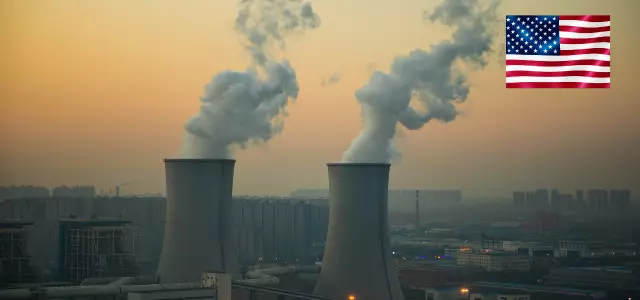
This article originally ran on Forbes.com on January 8, 2025. All rights reserved.
Daniel B. Markind is a Forbes.com energy column contributor. The views expressed in this article are not to be associated with the views of Flaster Greenberg PC.
In the early hours of Monday, January 6, 2025, a severe winter storm fell on much of the MidAtlantic region and extended into New England. Forecasters predicted that this would only be the first in a series of significant cold fronts that will likely bring to the Northeast some of the coldest weather in a decade, and for an extended time period. (Source). As the weather is expected to remain frigid, demand and spot prices for oil and natural gas are likely to soar, commensurate with the need for people and businesses to heat their homes and other structures. (Source).
The frigid temperatures will bring an immediate challenge to the Northeast, many of whose governors and legislatures have made a priority of limiting fossil fuel development severely if not entirely – mainly as to natural gas already present in abundance in the Marcellus Shale area of Northeast Pennsylvania and Southwestern New York. This has been done in different ways, such as by banning fracking outright within their own borders (as in New York State) (Source) or by preventing the permitting of new pipeline infrastructure (as in New York, New Jersey, and Massachusetts) that, once built, could easily convey gas originating elsewhere to be consumed within those States’ borders. (Source).
Historically, however, this heavy-handed approach to “discouraging” fossil fuel production and usage has been quite problematic. In 2018, during a prior major cold front, New England actually had to import natural gas from Russia in order to satisfy its needs. (Source). As politically unpopular as it was at the time, that would be even more difficult in 2025, both for political reasons and for the fact that, in his waning days in office, President Joe Biden has placed even more sanctions on tankers transporting Russian energy than previously existed. (Source).
Last week, New York Governor Kathy Hochul also doubled down on her green climate agenda by banning fracking based on carbon dioxide. (Source). Unfortunately, her actions, and those of her predecessor, Andrew Cuomo, have now placed both New York and the New England states in a potentially severe energy bind. Cuomo used certain questionable legal authority provided by Section 401 of the federal Clean Water Act to block natural gas pipelines that, had they been built, would have connected the massive Marcellus Shale natural gas fields of Northeastern Pennsylvania with New England as a whole (Source) and with the New York City metropolitan area in particular. (Source) Despite having one of the world’s largest deposits of natural gas in the Marcellus Shale deposits located only about 100 miles away from New York City, the metropolitan region now has no ready supply of natural gas available in an emergency, such as the one that might be about to hit the Northeast.
To make matters even more obscure if not problematic, on January 20, Donald Trump will be sworn in for his second term as President of the United States. One of the central themes of the Trump campaign agenda was “Drill Baby Drill,” meaning the Trump Administration would be in support of a large increase in the production and development of fossil fuels. This was reiterated earlier this week when, in the face of current President Biden’s attempt to foreclose fossil fuel development along America’s Continental Shelf, Trump spokeswoman Karoline Leavitt stated that “…Biden will fail, and we will drill baby drill.” (Source).
During previous cold snaps, governors in the Northeast have asked for waivers in the past from the Jones Act, a controversial 1920 Federal law that prohibits foreign flagged ships from travelling from one United States port to another. (Source). Despite innumerable calls to repeal it, the Jones Act still remains on the books. As such, it limits the options for these states to obtain oil and natural gas via tanker, especially in an emergency. However, should any of these governors now request a Jones Act waiver, it will be interesting to see if President Trump even authorizes one – given that the need for a Jones Act waiver was certainly anticipatable if not preventable had certain Northeast states – like New York, New Jersey, and Massachusetts – not have acted to limit or ban readily available Marcellus gas within their borders in the first place. It is hard to imagine vibrant areas of commerce and high population like New York City and Boston facing brownouts at all, but that must now be considered as at least possible given the weather forecasts and the fact that, in hindsight, the Trump Administration might view all of this as a self-created emergency.
As much of America now girds itself for a difficult few weeks, those states who, had prioritized environmental posturing over energy availability and affordability must be especially on their guard. The first few weeks of the Trump Administration will be very eventful, not the least of which is in what ways will the Trump Administration reverse direction on things like the nation’s energy policies as a whole. Meanwhile, for states like New York, New Jersey, and Massachusetts, just surviving a long, cold, and difficult winter may prove to be job number one until next spring.
- Shareholder
Daniel B. Markind has over 40 years of experience as an airport, real estate, energy, and corporate transactional attorney. During that time, he has represented some of the largest companies in the United States in sophisticated ...


